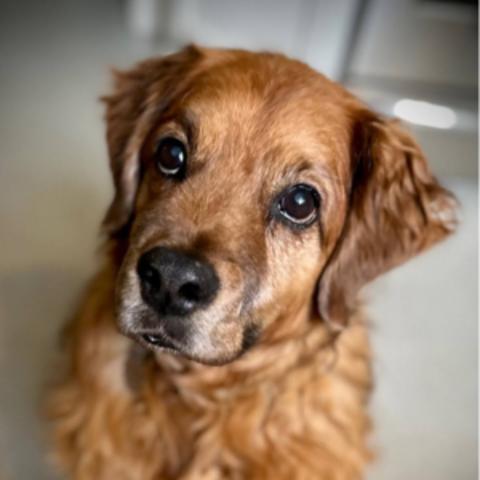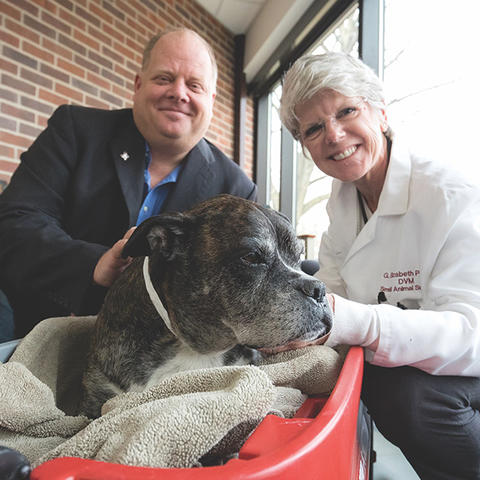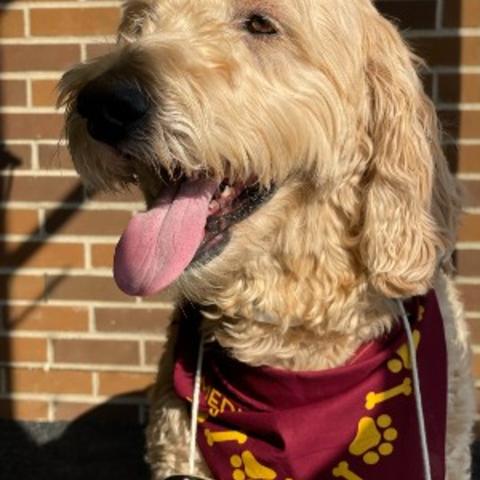Medical Oncology and Radiation Therapy
Cancer in pets is relatively common and one of the leading causes of death. There are many different types of cancer and many treatments available. Our goals upon consulting with you are
- to provide information about your pet’s condition, the treatment options available, and likely outcomes,
- to respect and support family choices, and
- most importantly, to maximize the quality of life of the pet.
Radiation Therapy Cannot Accept New Patients Until March 2024.
Please call Medical Oncology if you wish to discuss a potential radiation case.
To refer pets for radiotherapy, please call for a consultation or refer the pet to our Medical Oncology and Radiation Therapy service:
UMN Referral Information for Veterinarians
Email address: [email protected]
Phone: 612-624-7034
We look forward to welcoming clients and pets back to our radiation therapy service!
What is Cancer?
Cancer is the uncontrolled growth of abnormal cells on or in the body. There are many different types of cancer, most of which are treatable. In some cases we are able to control the cancer long term with specialized cancer care. Treatments offered for cancer in humans are increasingly available for pets, and include surgery, radiation therapy , chemotherapy , targeted therapy, immunotherapy, and clinical trials that investigate new drugs. While not every treatment is recommended for every pet, our goal upon consulting with you is to ensure you are aware of the options that may be available. Prior to determining treatment options, we gather important pieces of information that can help answer the following questions:
- What type of cancer does your pet have?
- How is your pet’s cancer likely to behave? (Is it more likely to grow in one location or spread to others?)
- What is the extent of the cancer throughout your pet’s body?
- Does your pet have other diseases or conditions that may impact treatment options or prognosis?
What to expect
The Clinical Oncology Team
Just as in human medicine, veterinary specialists are available to help general practitioners with complex cases. Veterinary specialists are individuals who have spent several years in intense training studying their disciplines and undergo rigorous examinations to ensure they meet the qualifications of a specialist. The Oncology Service provides integrated oncology care with colleagues in soft tissue surgery, oncologic surgery, pathology, medical oncology, and radiation therapy who work to provide comprehensive care for referral cases. Adopting this integrated approach allows us to provide thoughtful approaches to oncology cases that may benefit from multi-modality therapy with surgery, radiation therapy and/or chemotherapy. The oncology team is composed of board-certified specialists in medical oncology, radiation oncology, oncologic and soft tissue surgery, interns and residents in the midst of intense specialty training, and dedicated teams of veterinary nurses who strive to provide outstanding patient care. They work closely with other specialty teams in radiology, internal medicine, clinical pathology and neurology to formulate unique plans for each pet. Specialty teams work closely with referring general practitioners to ensure that the entire care team is involved should pets need to follow up at practices closer to home after treatment.
The Client-Pet-Oncology Team Relationship
While the Oncology service offers a full range of diagnostic and therapeutic options for pets with cancer, not all clients will wish to pursue diagnosis and treatment. Our role is to help clients know which options are possible, and to help explain what to expect during different treatments, prognosis with treatment, and estimated costs associated with treatment. Ultimately, we want to provide loving and outstanding care to pets and clients with cancer, regardless of decisions made for diagnosis or treatment. Our care does not stop after the first consultation or after a final chemotherapy or radiation treatment; we are here to help manage quality of life issues and/or assist with surveillance or monitoring regardless of what treatment (if any) a client chooses to pursue.
Resources
Comparative Oncology
The University of Minnesota is home to the Animal Cancer Care and Research (ACCR) Program, which supports the clinical oncology service, but also strives to determine the underlying causes for malignancies and identify similarities and differences between cancers in animals and humans. This allows us to develop new diagnostic and treatment strategies that may be helpful across species.
Clinical trials
Clinical trials are an important means by which we learn more about cancer and potential new treatments. Participation in trials may help reduce some of the costs associated with cancer treatment.
Learn more about the Oncology clinical trials offered by the College of Veterinary Medicine
Client handouts
We are currently working to include many different client handouts on our website. Some clients wish to see some general information ahead of their appointment but this can also serve as a reference after an appointment. Please note that these are general information guides and not all information is applicable to your pet. This is a work in progress so please bear with us as we provide comprehensive materials.
- Anal Sac Tumors (pdf)
- Canine Brain Tumors
- Canine Bladder/Urethral Tumors (Transitional Cell Carcinoma)
- Canine Soft Tissue Sarcomas (pdf)
- Canine Thyroid Tumors (pdf)
- Nasal Tumors (pdf)
- Radiation Therapy
- Radiation Therapy FAQ
Program information for Residency and Internship candidates
What is radiation therapy?
Radiation therapy uses ionizing radiation to induce DNA damage within cancer cells, which ultimately results in cancer cell death.
Learn more about the Veterinary Medical Center's Radiation Therapy Service
Team
News
Give back to the VMC
Gifts drive discovery, expand access to services, and bring expert care to the thousands of companion animals we serve each year.


